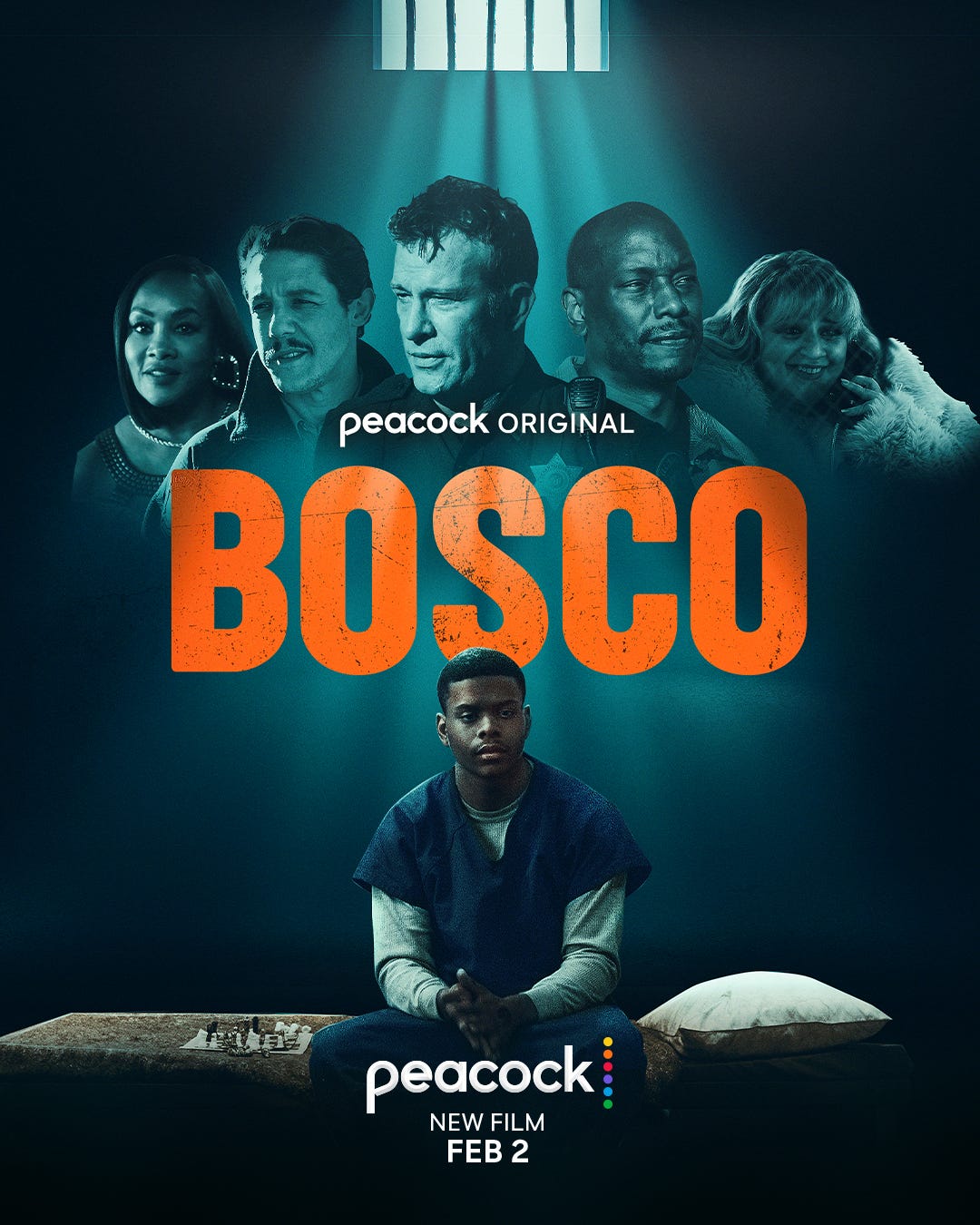The idea of a prison escape is popular in entertainment. From the film “Shawshank Redemption” to the hit television series “Prison Break,” the idea of someone being able to find freedom from unjust incarceration is something that grabs the imagination of audiences. But what if someone did the crime: is it still unjust? Is their quest for freedom still inspirational? These are the questions asked by director Nicholas Manuel Pino in the film “Bosco,” currently streaming on Peacock.
Quawntay ‘Bosco’ Adams (Aubrey Joseph) is serving a 35-year sentence for a marijuana possession charge. He is now in a supermax prison after trying to escape from a lower-security prison. He is desperate to leave as he has a child on the way and knows the pain of growing up with a parent who is incarcerated. He works with his neighboring inmate, The Bull (John Lewis), to secure materials for his escape plan, as well as a phone number to a woman
from a lonely-hearts ad. As Bosco connects with Tammy (Nikki Blonsky), they begin making plans for his escape. But when the time comes for Bosco to taste freedom, second thoughts start to plague everyone.
This film is based on the true story of Quawntay Adams as he wrote in his book “Chasin’ Freedum.” Some aspects of this movie are done well, but the editing leaves the movie's pacing somewhat sluggish, which is disappointing, particularly for a film about a prison break. There is a lot of material in this film that is both exciting and thoughtful, but it’s presented in a way that robs it of a lot of its heft, leaving me feeling unsatisfied with the finished result.
This is not the fault of Joseph, whose portrayal of Bosco is fantastic. The film includes a lot of voice-over work, and he imparts that with heart and pathos. I also quite enjoyed Blonsky’s performance as the woman in contact with a felon. She captured the naivete and strength of Tammy beautifully, and I appreciated the connection between those characters in particular.
But despite the performances, the script felt choppy and unfocused. The guards felt almost like stock villains with no real motivation. The film seemed to want to include aspects of social justice and freedom and comments on the carceral state but didn’t quite manage to thread the needle cleanly. Which doesn’t mean that what is said is bad by any stretch, just that I wish it had been cleaner.
While federal marijuana possession charges have been dropping significantly in the past decade, they still overwhelmingly impact Black and Latino men despite being consistent across all races. When pre-production for “Bosco” began, Adams was still in prison, only being released in 2020. I appreciate much of what the film tries to accomplish in telling his story; I just desired a more focused story, as I believe that could have addressed the larger issues more clearly.





